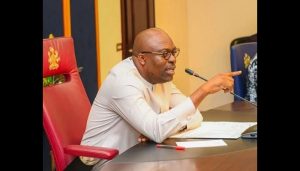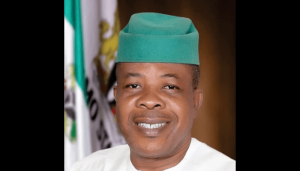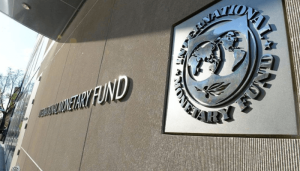REDEFINING THE NIGERIAN DEMOCRACY, AN ANTIDOTE TO ETHNO-RELIGIOUS AND REGIONAL POLITICS

Nigeria is one of the most heterogeneous countries on the planet earth, owing to its multiplicity of ethnic groups, religious beliefs and cultural practices.
The country’s heterogeneity could be seen by its current over 215 million population, which encompasses over 250 ethnic groups, two major religious adherents: Islam and Christianity and few minority traditional religion adherents.
Thus, classifying Nigeria as a sovereign state, wherein the people have common beliefs, traditions, and culture is a fallacy. Why? Because in a sovereign nation, societal goals are formed, concentrated and founded on an ideological framework and not mediocrity.
This American style of western democracy, which we copied and pasted could not find relevance in Nigerian society. In our society, the political inclinations are geared towards ethnic and regional loyalty. Consequently, mediocrity has hindered the emergence of competent and intellectual leaders. Nigeria and many other African societies were forcefully brought together as nation-states for strategic and political gains during the inglorious scrambling and partitioning of Africa.
The antidote for effective democracy in Nigeria is the amendment of the 1999 Constitution of the Federal Republic by injecting a rotational presidency within the six geo-political zones.
How should it work?
- When the north-west produces the president, the vice president should come from the south-east. The senate president should come from the south-west. Speaker house of representatives from north-central. Chief Justice from the north-east. Secretary to the government of the federation should come from south-south.
- After eight years, the positions should shift to the other opposite side as enshrined in the Constitution.
- If a sitting president dies, gets impeached or becomes permanently incapacitated, the constitutions should disallow the vice president to take over the reins of power, rather than conduct a bye-election to produce another president to complete the same term of the deceased president. This should also apply to other political offices.
- The Constitution must spell out clearly that all political parties must zone elective positions, to enable every zone to produce the president.
- The constitution of the Federal Republic must ensure that at the state level, the aforementioned principles and practices are implemented in the three senatorial districts or the three geopolitical zones of the state.
It is no doubt that the current democracy practised in Nigeria is deceptive. It is very glaring that over the years, stagnation has consistently been recorded due to ethnic, religious and regional interests being used as devices to install incompetent leaders, divert public funds from the national treasury, and marginalize and hold to ransom the “so-called” ethnic minority groups.
In the United States of America, a direct popular vote from the 50 States; including the capital city Washington DC, doesn’t determine who wins the presidential election. How does that work? A total of 538 electors form the Electoral College. Each elector casts one vote following the General Election. The candidate who gets 270 votes or more wins. The newly elected President and Vice President are then inaugurated on January 20th. This goes to tell a sane mind that the United States too redefined its democracy to meet its local demands because there’s no perfect system of government. All societies adjust based on their uniqueness.
One benefit that could accrue from redefining our democracy is that it will be the quickest way to weaken secessionist agitations in a polarized polity like Nigeria. It will also help to minimize the fraudulent activities of money-bags and to pave the way for the emergence of competent leaders. Moreover, it will enable a level playing ground for all aspirants to public office, to mention but a few. This template may be adopted by any interested African country, not just Nigeria.
Finally, in every religion, region, ethnicity, race and people, there are competent leaders. Make no mistake about it, I reiterate, that we shall never move forward and attain meaningful development without redefining our democracy, even in the next 100 hundred years. Though in a couple of previous administrations, efforts were made to reset and revamp our democracy through constitutional conferences (Confab), implementation has been futile.
For feedback and criticisms, use the email address below: nathandaviddandasu@gmail.com









